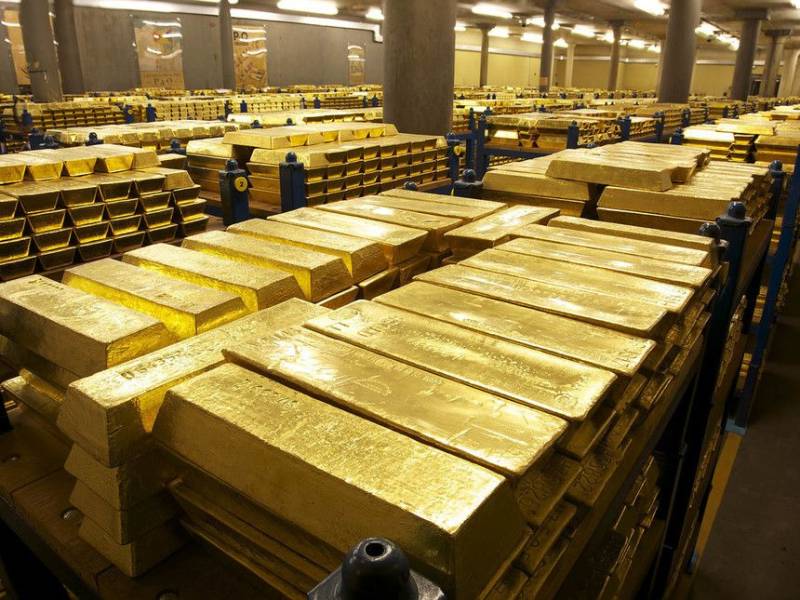The Bank of England froze an estimated $1.2 billion worth of Venezuelan gold in its vaults last year, after London joined other US allies in recogni\sing self-proclaimed ‘interim president’ Juan Guaido as the Latin American nation’s ruler. The haul is just part of the tens of billions of dollars in Venezuelan assets frozen in banks abroad.
Caracas has reached a deal with the United Nations Development Programme allowing for a portion of the gold it has stored in UK vaults to be accessed and spent on food and medicine purchases, Venezuelan Central Bank governor Calixto Ortega has said.
“It’s not my word, it’s not me saying that I am going to buy food, medicine and medical equipment. It’s the United Nations who is saying that. They are not going to be involved in anything dark that is not neutral and independent,” Ortega said, speaking to Reuters.
The Bank of England, which froze some 31 tonnes of Venezuelan gold in February 2019, has yet to comment on the deal, but would be required to give its approval for any agreement to proceed.
Ortega stressed that his country has been placed in desperate straits by Western countries’ policies, which have included sanctions and asset seizures, especially in the wake of the coronavirus pandemic. “This is the worst a nation can experience,” he said. “We have no income, no way of generating cash flow, and no access to funds we have deposited abroad in the middle of a pandemic.”
Venezuela’s Central Bank filed a legal claim in a commercial court in London earlier this month to try to force the Bank of England to transfer some $1.13 billion-worth of its gold to fund Caracas’s coronavirus response. In his Reuters interview, Ortega said he was ‘optimistic’ that the legal case would be resolved soon.
Last week, former independent MP Chris Williamson told Sputnik that he felt that the Bank of England had acted illegally with its seizures, and should never have frozen Venezuela’s gold assets in the first place. He added that if London was really “serious about human rights and…a global response to this pandemic then we absolutely should return the assets.”
Venezuelan Crisis
Venezuela was thrust into a major political crisis in January 2019, after opposition lawmaker Juan Guaido proclaimed himself ‘interim president’ and demanded fresh elections, just weeks after President Nicolas Maduro was inaugurated for a second term after winning elections fair and square in May 2018 with 67 percent of the vote.
The country’s crisis was exacerbated after the US slapped the country’s state oil-giant PDVSA with sanctions, and seized billions in PDVSA properties overseas, while freezing billions of dollars more in assets Caracas had stashed in US banks. Other countries including the UK have followed suit. The US has since transferred part of these funds into the accounts of Guaido and his allies, only to see part of the moneys spent on their own personal enrichment.
Even before the sanctions were introduced last year, the US waged nearly a decade-long campaign against the Venezuelan government aimed at toppling its democratic socialist government. Last year, the Latin American Geopolitical Strategic Center think tank estimated that the US-led financial blockade had cost Caracas between $260 billion and $350 billion in lost earnings between 2013 and 2017 alone, equivalent to over $12,000 for every man, woman and child in the country.






